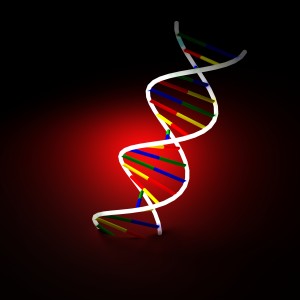 CHICAGO – The results of a comprehensive scientific study released earlier this year suggest that homosexuality cannot be directly traced to a ‘gay gene,’ but is instead dependent on a variety of factors, including environmental and social influences.
CHICAGO – The results of a comprehensive scientific study released earlier this year suggest that homosexuality cannot be directly traced to a ‘gay gene,’ but is instead dependent on a variety of factors, including environmental and social influences.
Pro-homosexual activists have long claimed that homosexuality and abnormal “sexual orientations” are primarily caused by genetic factors. They argue that individuals with a hereditary “gay gene” are predisposed toward same-sex attractions and thus unable to appreciate traditional marriages.
However, scientific findings released earlier this year during the American Association for the Advancement of Science in Chicago call this premise into question. During the meeting, Michael Bailey of Northwestern University unveiled comprehensive research results which suggest that genetics alone do not determine “sexual orientation.”
In his research, Bailey and other scientists examined the DNA of 400 men who described themselves as homosexual. Ultimately, the researchers concluded that homosexuality cannot be traced to specific genes.
“The genes were neither sufficient, nor necessary, to make any of the men gay,” wrote Ian Sample, science correspondent for The Guardian.
The findings show that it is impossible to accurately predict a person’s sexual behavior by solely examining DNA.
“The flawed thinking behind a genetic test for sexual orientation is clear from studies of twins, which show that the identical twin of a gay man, who carries an exact replica of his brother’s DNA, is more likely to be straight than gay,” The Guardian article continues. “That means even a perfect genetic test that picked up every gene linked to sexual orientation would still be less effective than flipping a coin.”
Alan Sanders, a Northwestern University professor who led the recent study, confirmed that the “gay gene” theory is largely unfounded.
“We don’t think genetics is the whole story,” Sanders stated, according to The Telegraph. “It’s not.”
Though the scientists maintained that genetics do at least partly influence sexual orientation, these recent findings undermine the belief that homosexuality is predetermined. Environmental factors, such as the absence of a father or an unhealthy domestic upbringing, might play significant roles.
Bryan Fischer of the American Family Association says the scientific findings show that homosexual behavior is ultimately an individual choice.
“Without a genetic causation, sexual preference in behavior is clearly a choice, a choice which no one is compelled to make,” Fischer wrote in a column last week. “And that choice can be evaluated in any number of ways, including whether or not it is good for human health and whether or not same-sex households are sub-optimal nurturing environments for vulnerable young children.”
“If homosexual conduct is ultimately a matter of choice,” Fischer continued, “then the homosexual lobby has nothing, because homosexual conduct is clearly harmful to human beings in any number of ways, not the least of which is serving as the leading cause of HIV/AIDS, which can leave young men disease-ridden and destined for an early grave.”
“I am not persuaded that genes are even a contributing factor,” he added. “But even if they are, the great news is that if individuals are not biologically predetermined to pursue the homosexual lifestyle, then change is possible as a matter of scientific fact. This leads to one simple, salient truth: there is hope for the homosexual.”
Become a Christian News Network Supporter...


